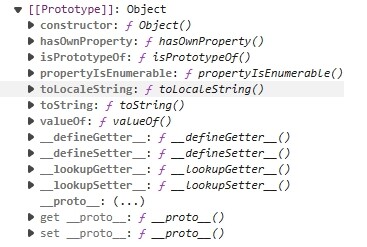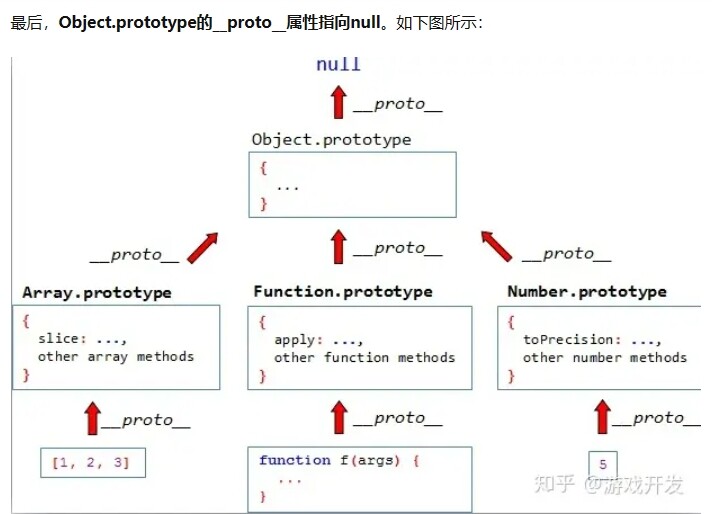2023/12/4 OOP 与继承
器:工具,JS,VUE,React…
术:用前端做了什么项目。React 设计了什么,针对了什么问题,解决了什么
道:知识体系 -> 以道驭术
什么是面向对象 Object-oriented Programming Java -> 一切皆对象
类 :1.属性 2.方法对象是类的实例化
1 2 3 4 5 6 7 8 9 10 11 12 13 14 15 16 17 18 init ()whitePlay ()repaint ()check ()const checkerBoard = new CheckerBoard ()const whitePlayer = new Player ('white' )const blackPlayer = new Player ('black' )whitePlayer.start () checkerBoard.repaint () checkerBoard.check () blackPlayer.start () whitePlayer.rollback ()
JS 中的面向对象 JS 中创建一个对象,有哪些方法? 1 2 3 var baz = Object .create ({}) var bar = {} var p = new Person ()
Object.prototype Object.prototype 是所有对象的原型对象,所有对象都有这个属性
思考:如何用 Object.create 创建一个对象实现 var bar={}一样的效果
1 var foo = Object .create (Object .prototype
proto 本质是原型链关系JS 这门语言本质设计的时候就是原型链关系proto === B
new 关键字 1 2 3 4 5 6 7 8 9 10 11 12 13 function Person (name, age ) { this .name = name this .age = age } const p = new Person ('L' , 35 )p.__proto__ === Person .prototype Person .prototype constructor === Person p.constructor === Person
new 关键字到底干了什么?
创建了一个对象
这个对象的原型指向了这个 Person/Function 的 prototype
该对象实现了 Person 的方法
根据一些特定的情况返回对象
如果这个函数没有返回值,或者返回一个非 对象类型,则 new 最后返回创建的这个对象(p)
如果这个构造函数明确返回了一个对象(return{}),则返回这个对象
1 2 3 4 5 6 7 8 9 10 11 12 13 14 15 16 17 18 19 20 21 function newFunc (Person, ...rest ) { if (typeof Person !== 'function' ) { throw new Error ('Person必须是一个函数' ) } var obj = Object .create (Person .prototype var result = Person .apply (obj, rest) return result && typeof result === 'object' ? result : obj } function inherit (p ) { if (p === null ) throw TypeError () if (Object .create ) { return Object .create (p) } if (typeof p !== 'object' && typeof p !== 'function' ) throw TypeError () function f ( f.prototype return new f () }
继承 继承描述类和类之间的关系
原型继承 1 2 3 4 5 6 7 8 9 10 11 12 13 14 function Parent (name ) { this .name = ['lei' , 'yu' ] } Parent .prototype getName = function ( return this .name } function Child (Child .prototype new Parent ()Child .prototype constructor = Child
构造函数继承 1 2 3 4 5 6 7 8 9 10 11 function Parent (name ) { this .name = name } Parent .prototype getName = function ( return this .name } function Child (name ) { Parent .call (this , name) }
组合继承 1 2 3 4 5 6 7 8 9 10 11 12 13 14 15 function Parent (name ) { this .name = name } Parent .prototype getName = function ( return this .name } function Child (name ) { Parent .call (this , name) Child .prototype new Parent () Child .prototype constructor = Child }
组合寄生式继承 1 2 3 4 5 6 7 8 9 10 11 12 13 14 15 function Parent (name ) { this .name = name } Parent .prototype getName = function ( return this .name } function Child (name ) { Parent .call (this , name) Child .prototype inherit (Parent .prototype Child .prototype constructor = Child }
Q&A 组合寄生和 class 的区别?
Loose 模式应该差不多,主要是以下区别:

